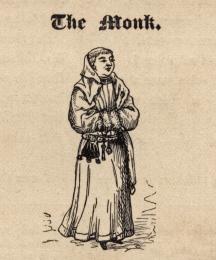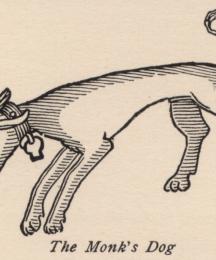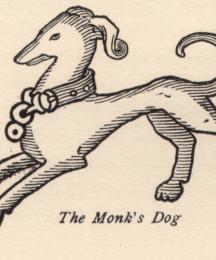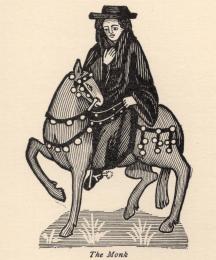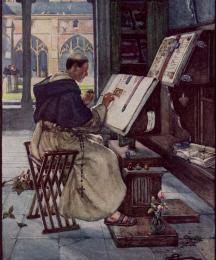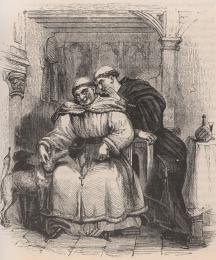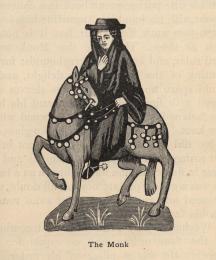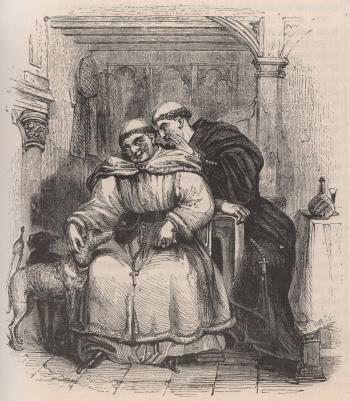
"A Monk ther was, a fair for the maistrie,
An outridere, that lovede venerie,
A manly man, to been an abbot able.
Ful many a deyntee horse hadde he in stable,
And whan he rood, men myghte his brydel heere
Gynglen in a whistlynge wynd als cleere
And eek as loude as dooth the chapel belle
Ther as this lorde was kepere of the celle.
The reule of Seint Maure or of Seing Beneit -
By cause that it was old and somdel streit
This ilke Monk leet olde thynges pace,
And heeld after the newe world the space." (165-176)
The Monk, rather than telling a singular tale, tells a series of short anecdotes about the fall of princes and other men of power. His example cases range from Holofernes and Nebuchadnezzar to Alexander the Great.
An outridere, that lovede venerie,
A manly man, to been an abbot able.
Ful many a deyntee horse hadde he in stable,
And whan he rood, men myghte his brydel heere
Gynglen in a whistlynge wynd als cleere
And eek as loude as dooth the chapel belle
Ther as this lorde was kepere of the celle.
The reule of Seint Maure or of Seing Beneit -
By cause that it was old and somdel streit
This ilke Monk leet olde thynges pace,
And heeld after the newe world the space." (165-176)
The Monk, rather than telling a singular tale, tells a series of short anecdotes about the fall of princes and other men of power. His example cases range from Holofernes and Nebuchadnezzar to Alexander the Great.
Edward Henry Corbould (1815 - 1905)
Sir W. Russell Flint (1880 - 1969)
Mrs. H. R. Haweis (1848 - 1898)
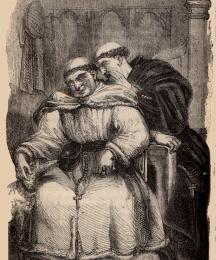
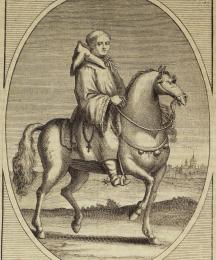
Edward Henry Corbould (1815 - 1905)
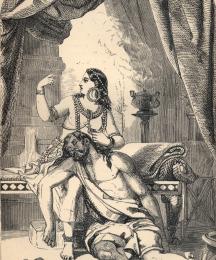
Sir W. Russell Flint (1880 - 1969)
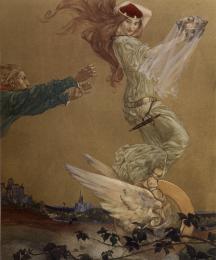
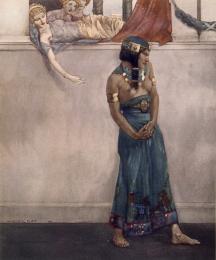
Mrs. H. R. Haweis (1848 - 1898)
